Athlete’s Guide for Cold & Flu Season
Raspy cough? Runny nose? In bed with a fever? Nobody likes to get knocked down with a nasty cold or flu, especially when it means that it’ll get in the way of your training goals. We’ve got some expert-approved tips to help get you through this cold and flu season. But first you need to know the truth is that there is a highly complex relationship when it comes to exercise and the immune system, and regardless of whether you’re a runner, fighter, cyclist or a bodybuilder, there are a few important things to pay attention to if you want to stay in the game.
Exercise & Immune Function
Without getting into too many specific details, it is important to know how the immune system works at a high level in order to avoid getting sick.
First off, it’s well known that when you exercise you release powerful, performance-enhancing hormones, including adrenaline and cortisol. Yet, despite their positive effects on performance, these same hormones can negatively affect the immune system by decreasing the levels of antibodies responsible for fighting invaders like viruses and bacteria.
Research has demonstrated that a ‘J’ shaped curve exists between exercise and illness. This curve shows that while moderate exercise can strengthen immunity in athletes, intense or extreme exercise may actually decrease resistance to illness.
In fact, in the hours after a hard workout there is often a decrease in antibodies – which means there is a greater risk for infection. It’s during this post-training ‘open window’ that athletes need to pay particular attention to, in order to avoid getting sick. Read the guide below for tips for staying healthy this season:
Prevention, Healing & Recovery For Athletes
| ISSUES | ACTIONS TO TAKE | |
|---|---|---|
| Prevention | - Hard workouts and extended training may suppress an athlete’s immune system for between 3-72 hours - This immune susceptibility is known as the ‘open window’ - Nutritional deficiencies, stress, lack of sleep and overtraining all reduce immunity! | - Exercise hypervigilance to protect yourself during the ‘open window’ - Wash your hands at the gym - Minimize contact with people who are sick and avoid sharing - Avoid touching your face - In general maintain your optimal nutritional status by eating a balanced diet, supplementation can also be helpful! |
| Nutrient Timing | - Intense exercise can lead to higher increase in illness due to weakened immunity - Muscles use glucose for energy; yet white blood cells also use glucose too which means hard workouts may result in nutrient competition for glucose | - Carbs helps minimize the inflammatory response within the immune system, so be sure to refuel your muscles AND your immune system properly with protein AND carbs after intense workouts! |
| Training | - Overtraining and being chronically fatigued may weaken the immune system, making it more primed for hosting viruses and infections - On the flip side, consistent movement of moderate exercise may actually boost immunity (particularly against colds and respiratory issues) because it allows the fluids in the lymph system to drain and clear out | - Build and maintain your training plan slowly and consistently by allowing your body to get used to the intensity of exercise - Keep a training journal and note your fatigue levels - if you notice you are feeling extra tired this may be an early warning sign of illness so take it easy - Avoid getting overly wet or cold during outdoor workouts - During intense outdoor exercise be sure to use a face mask to help shield your respiratory membranes from cold/dry air or pollution |
| Recovery | - Taking time to rest and recover is critical for overall health & performance - Training with a viral infection can make things worse and blow up into more dangerous inflammatory conditions (that will result in longer periods of recovery!) | - Use careful judgement for training when returning to training - When returning, get back to training with your intention focused on recovery - go lighter than usual and listen to your body! - General guidelines to follow for getting back to training: >> If all symptoms are above the neck (i.e a sore throat, runny nose), a light workout may actually be helpful to move the lymph >> For symptoms presenting below the neck, it requires that you be more cautious - consider waiting 1-2 days after the symptoms have resolved |
| Nutrition & Supplementation | - A compromised nutritional status will affect any athlete’s ability to ward off and recover from illness - Processed foods, sugar, alcohol which can all dampen immune system | - Maintain your optimal nutritional status by eating a well balanced diet - Supplementation of Vitamin D, Probiotics and a quality multivitamin - Stay hydrated with fluids - Eat immune boosting foods! |
| Sleep, Stress & Lifestyle | - Excess stress and sleep deprivation suppresses immune system function | - Minimize stress as much as possible - Schedule extra sleep after hard workouts and while recovering from illness - Consider illness a good time to focus on techniques related to training that aren’t as physical - goal setting, mental training, stretching, etc. |
Do you have a nutrition question you want to have answered? Let us know! You can find us on Facebook, Instagram, and Twitter. We are #ReflexNation.





